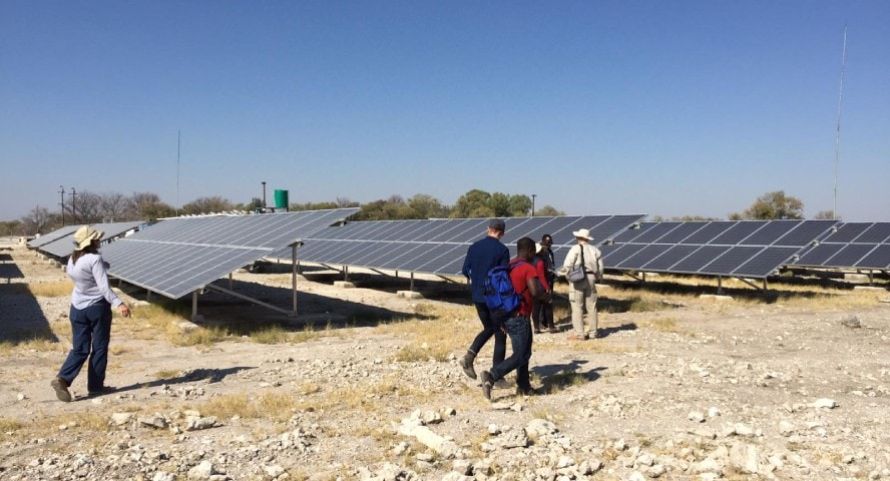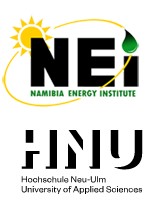Providing impetus for local value creation and more solar electricity

The challenge
Namibia is more than twice the size of the Federal Republic of Germany, but has only 2.53 million inhabitants. At least half of them lack access to electricity. Connecting them to the grid would be expensive and time-consuming. Off-grid photovoltaic systems can be built faster and cheaper. However, the electricity consumption of private households is not sufficient to operate them sustainably. In this respect, the demand side for electricity must be taken more into account in the construction of PV plants and, at best, stimulated so that the electricity supply can also be accompanied by local value creation.
The goal
The Namibia Energy Institute (NEI) and Neu-Ulm University of Applied Sciences (HNU) want to contribute to this by promoting the use of decentrally generated renewable energy in two rural areas – Tsumkwe, a northern settlement 735 kilometres from Windhoek, and Uutsathima, a market town in the Omusati region. In both places, the project partners want to motivate the respective electricity suppliers to use renewable energies instead of fossil fuels. In addition, they want to expand the commercial use of energy to enable the economically sustainable operation of PV systems and local value creation. The key question is: How can solar mini-grid systems be operated economically and thus promote entrepreneurship in rural Namibia?
The partners
The NEI wants to contribute to the industrialisation of Namibia, has developed socially acceptable and at the same time cost-covering tariff systems and has been involved in the development of mini-grids in Tsumkwe since 2007. HNU, in turn, has implemented various renewable energy projects in rural Africa, including in Namibia. Both partners have already worked together in a previous project to identify business models.
Approach
The partners want to implement three measures together. First, they want to assess the opportunities for the commercial application of renewable energies. Secondly, they want to develop a methodology to be able to record CO2 savings with the help of tools with the aim of enabling energy suppliers to generate emission certificates and thus additional income. Thirdly, the insights gained are to be incorporated into workshops and other formats of knowledge transfer in order to be able to give impulses to different sectors and actors.
For the development of the CO2 savings tool, the partners are working together with the two utilities CENORED and NORED, jointly creating an assessment methodology and carrying out a data analysis.
For knowledge transfer, the partners are creating training concepts for selected business models and are also developing a concept for entrepreneurship training, which will be passed on with the help of train-the-trainer courses.
Optimising the supply and demand side of mini-grid systems in Namibia
Productive Use
Hochschule Neu-Ulm, Namibia Energy Institute (NEI)
01/03/2022 - 30/09/2023



